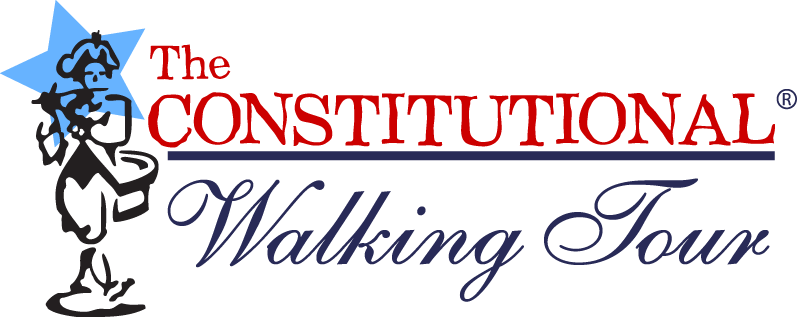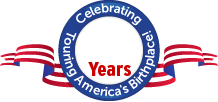Guest Blogger: Andrew Terranova, Concierge, Sofitel Philadelphia
Related Posts
- Buy Tickets for The Constitutional Walking Tour of Philadelphia - See 20+ Sites on a Primary Overview of Independence Park, including the Liberty Bell and Independence Hall
Just like Manhattan has the High Line which is a public park built on a historic freight rail line elevated above the streets on Manhattan’s West Side, Philadelphia now lays claim to the Rail Park which is a public park built on historic rail lines above (and soon to be below) the streets of Center City.

Industrial Revolution
In Pennsylvania’s rolling hills lay the resources which fueled the Industrial Revolution: iron ore (one of the main raw materials to make steel) rode the rails to factories, foundries and far away cities. Philadelphia became the “Workshop of the World” sending products to ports along the Delaware River for shipping around the globe. Check out the amazing and informative iron wall that pays tribute to Philadelphia’s past railroad and manufacturing prowess, including Baldwin Locomotive Works and Fleer Gum, the inventors of Chiclets and Double Bubble Chewing Gum. The Pennsylvania Railroad and the Reading Company, each with headquarters in Philadelphia, were once the largest private companies in the world, and both transformed transportation and industry across America.

The Rail Park Experience
The neighborhood that the Rail Park is located in is affectionately known as the “Eraserhood,” named for film director David Lynch, who once worked, lived and played in the area. Lynch also attended the Pennsylvania Academy of Fine Arts, which is located just blocks from the Rail Park.
Phase 1 of the Rail Park has been completed and was opened to the public in June 2018 to much acclaim. Designed by Studio Bryan Hanes and Urban Engineers, this first section of the Rail Park took nineteen months to build, and is now home to 1,100 plants, 11 types of trees, 30 varieties of perennials, and gorgeous interpretive graphics developed by Cloud Gehshan. There are lovely swinging benches for relaxing and a lot of lush greenery. It’s a great place to relax, read a book, meet with friends, or people watch.

The Rail Park Today
At this time, the Rail Park is a quarter mile long. Eventually, the Rail Park will evolve into a three mile park with three sections: the Viaduct, the Cut (Phase 1 is part of the Cut), and the Tunnel. Phase 1 of the Rail Park goes from 1300 Noble Street onto the Viaduct.

Entrances
There are two entrances to the park:
- 1300 Noble Street (wheelchair accessible)
- Staircase on Callowhill between 11th and 12th Streets.
Cost
The Rail Park is free and open to the public, and it is pet friendly, but please clean up after your pooches.
Hours of Operation
7AM-10PM year round

The Rail Park Tomorrow
The completed Rail Park will be twice the length and width of New York’s High Line, and it will feature a bike lane, pedestrian path and more. In an ambitious development effort, the completed park will extend into an abandoned train tunnel, a roughly 1.5 mile underground stretch from behind the Rodin Museum that ends in the Brewerytown section near the Philadelphia Zoo.
Shafts of light beam into the tunnel and will create a unique underground park with shops, activities and food carts. When the remaining phases are completed, the Rail Park will be a three-mile park that stretches up past the Benjamin Franklin Parkway, to Girard and 31st streets, offering stunning views of the Philadelphia skyline.
The History – The Reading Company
The Philadelphia and Reading (P&R) Railroad (which became the Reading Company) was one of the first railroads in America, dating back to 1833. Primarily, the P&R was used for transporting coal from Northeastern Pennsylvania to Philadelphia. By 1871, the Reading Company was the largest company in the world, when it transported more coal than any other company in the world, had a budget larger than the United States’ Federal government, and a corporate valuation of $170 million.
By 1923, the Reading Company’s railroad’s tracks crisscrossed the entire eastern half of Pennsylvania and extended into New York City.
By 1976, after merging with Conrail, the Reading Company left a skeleton of train tracks on elevated areas and tunnels throughout Center City. In 1984, the last train travelled these tracks before the tracks and supporting structures were left to deteriorate.
Since then, the tracks have been overgrown fallen into disrepair and covered in graffiti.

The History – Pennsylvania Railroad (PRR)
In 1846, the PRR started with one point to point route – Harrisburg to Pittsburgh. The PRR was a visionary to develop a rail network that served a massive part of the United States, rather than just operate point to point routes as was the standard industry custom and practice. This was accomplished by acquiring more than 800 railroad companies, and in turn the PRR operated over 10,000 miles of rail lines and became the largest publicly traded company in the world. It was the Apple of its day.
Until 1968, PRR transported passengers and freight when it merged with New York Central Railroad. While many of the companies combined rail network were divided into separate entities, there are also many lines which are still in use today by Amtrak, Septa and New Jersey Transit.
Proof of Concept
Inspired by other parks of the same nature in New York and Paris, the Rail Park in Philadelphia now has its own unique answer to urban renewal. Right now it is only a quarter-mile long, but within a few years it is expected to be longer than New York City’s famous High Line.
In 2003, a grassroots campaign was born by the residents of the neighborhood (around 12th and Callowhill Streets) to restore the viaduct as a park. By 2016, $10.3 million was raised and the dream started to become a reality. Residents and city officials were inspired by New York’s High Line park to see how that 22 block park helped revitalize and transform an old, industrial section of Manhattan. Perhaps the same magic could happen in Philadelphia? We certainly have the bones to do something great, now we just need to add the meat.
“The whole purpose was proof of concept. Could we actually renovate this rail line?” said Paul Levy, of the Center City District, a joint civic and business improvement organization managing the Phase 1 of the Rail Park project. “What I fully hope happens is that people will get to the end of the park and say ‘Is this all?’ The idea is to get people enthusiastic about what’s next.” We say, Mission Accomplished!
Rail Park Beer Garden
Relax at the Rail Park Beer Garden after enjoying the Rail Park, and know that a portion of all proceeds benefit the Friends of the Rail Park. Check of the Rail Park Beer Garden for their days and operating hours.
Insider Tips
Come prepared, there is very little shade at the Rail Park, so bring a hat, sunscreen and water. Also, there are no public bathrooms at the Rail Park (except for a couple of neaby porta-potties, so plan in advance).
In 1889, the P&R built a massive train shed and its headquarters on the corner of 12th and Market Streets. The only problem was that since 1853, a very popular open air market stood on that spot. After much negotiation and public outcry, the railroad terminal was built above the market and the market was pushed back to 12th and Filbert Streets. It is still there today – you may have heard of Reading Terminal Market, one of Philadelphia’s most visited attractions. The original train shed still stands and was incorporated in to the Pennsylvania Convention Center.

How to Get There
The Rail Park is conveniently located at 1300 Noble Street. For guests of The Constitutional Walking Tour, it is a super easy walk since it is just 0.8 mile away from the National Constitution Center where all of The Constitutional’s tours begin and end. You can also take the 45 bus north to 12th and Callowhill Streets, or take the Broad Street Line Subway to Race/Vine and walk east to the Rail Park. Street parking is easily available.
Additional Information
The Rail Park
1300 Noble Street
Philadelphia, PA 19123



